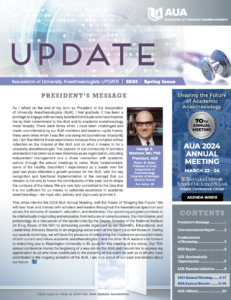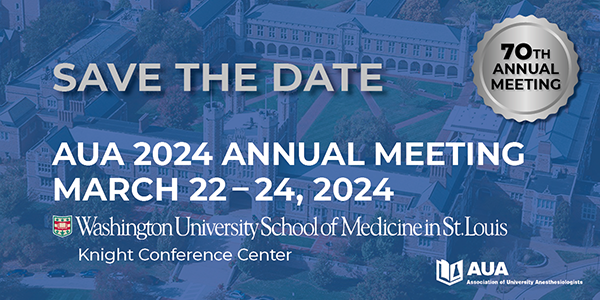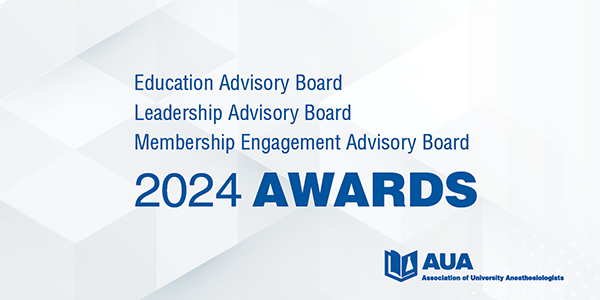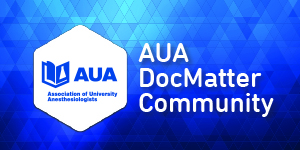Negotiations for Academics
As you exit the office, you can’t help but to ponder your recently completed conversation with your Chair; as you amble down the hallway in an apparent fog, replaying the conversation over and over again in your head, you become convinced that your position was not well received, and that your request would be denied by virtue of being ill-favored. By the time you arrive home that evening to share the details of today’s meeting with your partner, you are already starting to feel a bit nauseated about the likely result of this negotiation.
As a clinician, an educator, or a researcher, negotiations are often crucial to obtaining the resources necessary to be successful as an academic physician. Yet, in the 15 years that I have been teaching academic healthcare professionals about negotiation theory, most claim to be inadequately trained and generally averse to the practice of negotiation.
BASICS
The goal of every negotiation is to obtain an agreement that meets your needs. Importantly, a successful negotiation does not require your opponent to “lose.” Equally important, pre-determining your “needs” allows for post-hoc assessment of whether or not needs were met. Without planning, deals tend to leave a hollow feeling of inadequacy, regardless of the quality of the deal achieved.
Ignorance of the potential for negotiation is often the hallmark of academic physicians. In order to successfully negotiate, one must first recognize the opportunity. There have been many reasons posited for this academic physician blind-spot, including: a lack of negotiations training, desire to avoid confrontation, trained to be responsive to the needs of others, and trained to follow instructions explicitly or risk harm.1
PLANNING2
First, it is imperative to determine if your negotiation is cooperative or competitive. Cooperative negotiations are those in which both parties will need to continue to engage each other following the negotiation. Cooperative negotiations represent the vast majority of the negotiations encountered and introduce the concepts of honesty and goodwill into the overall planning.
To properly prepare a negotiation, please consider the following:
- Identify your goals and prioritize;
- Determine the Reservation Price, or the offer below which you would walk away;
- Determine your Target Price, or the goal offer;
- Understand your BATNA, or Best Alternative to the Negotiated Agreement;
- Attempt to determine your opponent’s goals and priorities.
By clarifying the priorities of yourself and your opponent, you introduce the opportunity for “expanding the pie,” or creating value whereby both parties achieve top priorities while yielding trivial concessions. This is because your priorities are likely different than your opponent's. Further, you may only negotiate as powerfully as your second-best option, or BATNA; therefore, it behooves you to maximally strengthen your BATNA prior to entering negotiations. For example, if your BATNA is unemployment, you are less likely to achieve the goals of your negotiation. Most academic physicians are loath to strengthen their BATNA because it’s not the first-choice opportunity; however, erroneously focusing all efforts on the first choice limits the potential for a successful first choice outcome.
MYTHS & ASSUMPTIONS
There are many myths of successful negotiators that pervade the self-help literature. While catchy phrases are appealing at first glance, scientific rigor does not support that: some are born negotiators; good negotiators take risks; experience is important; or, negotiators “win” a fixed sum.
Don’t assume that your opponent would act as you would, that your opponent would act logically, or that your opponent would do what is in their best interest.
BEST PRACTICES
- Talented negotiators plan extensively; they come to a negotiation prepared with data to support positions. The best negotiators creatively recognize and link concessions to similarly prioritized goals of their opponent.
- Negotiate with a fully authorized deal broker while professing the limits of your own authority, if possible. “I’m sorry, but I’ll need to check back with my partner before confirming that option.”
- Recognize the “home court disadvantage,” noting that negotiating from your own office may introduce unwanted disclosure, inadequate preparation and focus, and the inability to defer decisions.
- Employ objective-based deadlines or accelerated deadlines to revitalize stalled negotiations.
AVOID3
“Let’s split the difference” – This concession may put you beyond your reservation price if your opponent has anchored the negotiation far from your target.
“Take it or leave it” – The use of ultimatums generally reflects a very strong opposition BATNA and are not considered reasonable for cooperative negotiation.
“You’ve got to do better than that” – If you have conceded a well-researched offer, your opponent may rightly offer a counter. However, they may not request that you negotiate against yourself by proposing a more competitive bid to your own offer.
CONCLUSION
As academic physicians, we aim to invest our intellectual energy into cutting-edge clinical care, educational innovations, and the advancement of the science in our respective disciplines. Unfortunately, the failure to successfully negotiate stymies many worthy academic pursuits. With the knowledge of negotiation basics, a well-conceived plan, an optimized BATNA, and consideration for whom to negotiate with, where and when, you are most likely to avoid the feelings of inadequacy that accompanied the negotiator in the opening vignette. Simultaneously, you are likely to maximize your personal satisfaction with the outcome of any negotiation.
REFERENCES & FURTHER READING
- Babitsky, S, Mangraviti, JJ. The Successful Physician Negotiator: how to get what you deserve. SEAK, Inc. Falmouth, MA. 1998.
- Thompson, LL, The Mind and Heart of the Negotiator, 7th Ed. Pearson, Prentice Hall, Upper Saddle, NJ. 2021.
- Berger JS, Ho G, Sherman M, Charlton KL. Contract Negotiations for Senior Trainees. J Grad Med Educ. 2019 Dec; 11 (6): 717-718.











